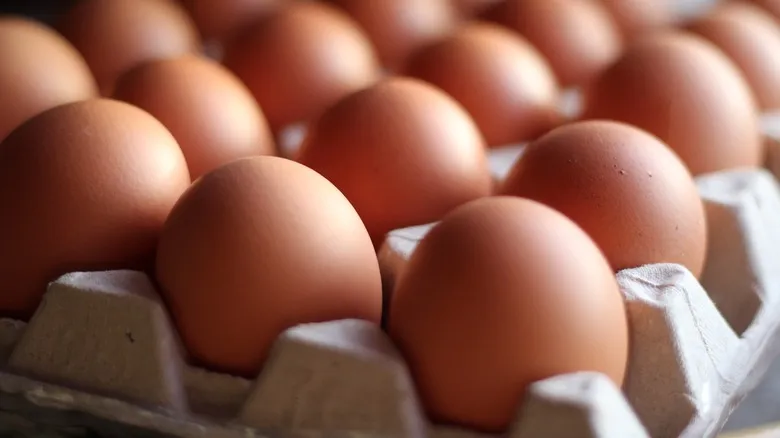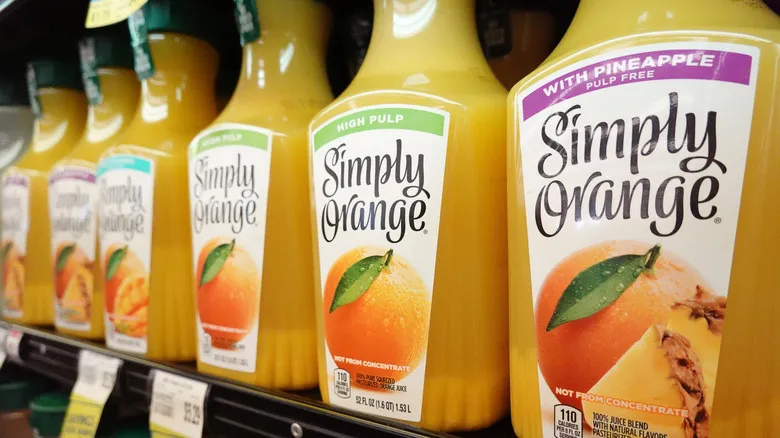How long are eggs actually good for?

Contrary to their appearance, eggs are surprisingly robust and can last much longer than many people realize. Cameron Whitehead, the chief operating officer of the egg producer Pete & Gerry's, informed Martha Stewart that once processed and packaged, eggs are typically safe to consume for up to 45 days.
The primary indicator that an egg is no longer fresh is runny egg whites. The firmer the whites, the fresher the egg. While the texture of the whites can vary depending on the bird's breed, for most commercially available eggs, the consistency of the whites serves as a reliable gauge of freshness. Even older eggs with runny whites can still be used for a simple, customizable egg bake. If you're aiming for the freshest eggs, always select perishable items from the back of the shelf, where cartons with the latest sell-by dates are located.
To determine if an egg has gone past its prime, you can perform the well-known float test. Simply place an uncracked egg in water; if it sinks, it’s still good to use. However, eggs tested this way should be consumed right away, as water can seep through the porous shell and increase the risk of bacterial contamination. Alternatively, you can crack the egg into a separate container to check its freshness. If the egg appears discolored or has an unpleasant odor, it’s best to discard it.
Recommended

Why Orange Juice Prices Are So High (And Will Probably Stay That Way)

What Excess Container Juice Means For Your Rotisserie Chicken

The Reason You Should Avoid Buying Pre-Cut Meat At The Grocery Store

The Best Deal On Fresh Sushi Happens At Whole Foods But Only On Fridays
Next up

